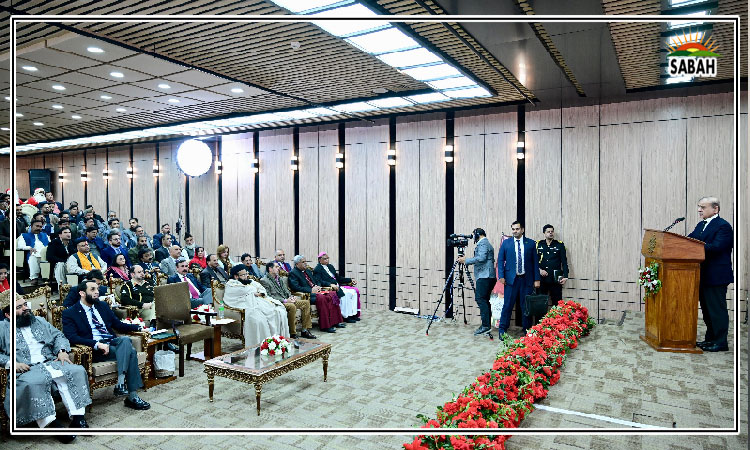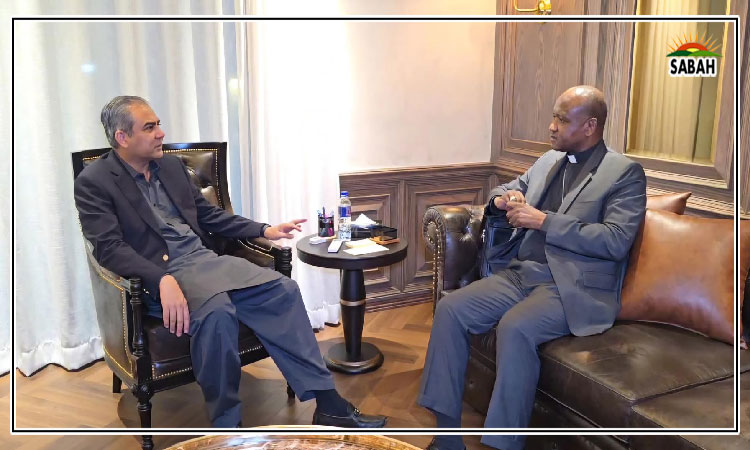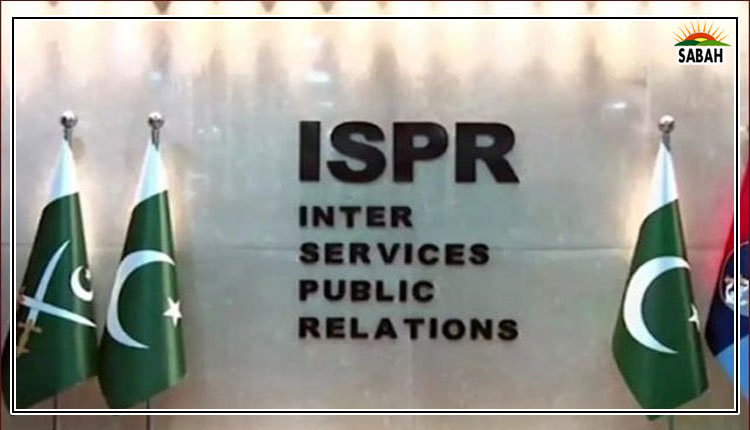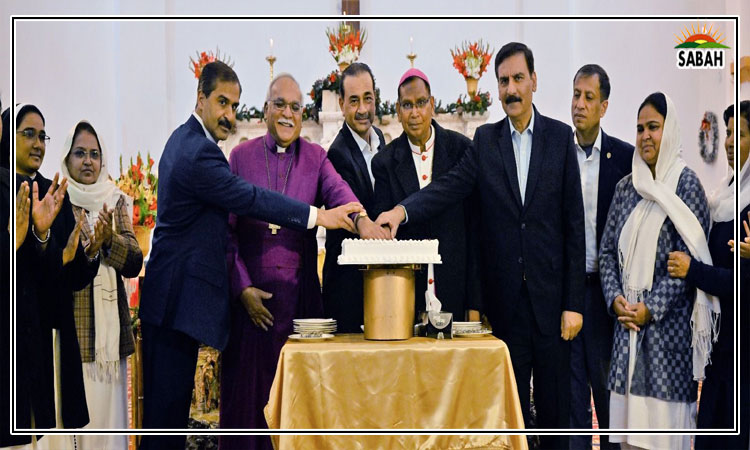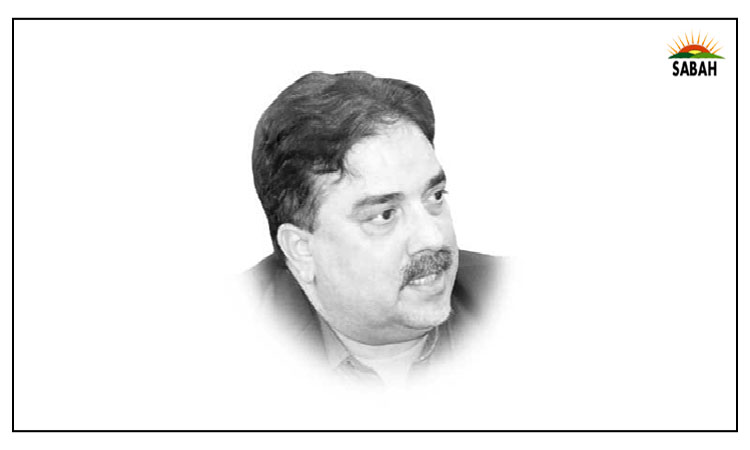Special court grants Shah Mahmood Qureshi’s 4-day physical remand to FIA under secrets law in cipher case.
ISLAMABAD, August 21 (SABAH): A special court in Islamabad, formed on Monday to hear cases filed under the Official Secrets Act, has granted Federal Investigation Agency (FIA) four-day physical remand of Pakistan Tehreek-e-Insaf (PTI) Vice Chairman Makhdoom Shah Mahmood Hussain Qureshi in a cipher case.
Shah Mahmood Qureshi, who was arrested on Saturday by the FIA, was presented before the special court on Monday for the hearing of a cipher case registered under the same act.
Abual Hasnat Muhammad Zulqarnain, an anti-terrorism court (ATC) judge, conducted the hearing on the case registered against Qureshi under the Official Secrets Act.
At the outset of the hearing, the FIA prosecutor sought Qureshi’s 13-day physical remand for the recovery of the alleged missing cipher while his counsel Shoaib Shaheen Advocate opposed the FIA’s plea.
The FIA prosecutor informed the court that incarcerated PTI Chief Imran Khan was also interrogated in connection with the investigation into the case at Attock jail.
After hearing the arguments, the court reserved the verdict on the FIA’s plea.
After a while, the judge announced the reserved verdict and ordered the FIA officials to present Qureshi before the court on August 25 (Friday).
Earlier, Judge Hasnat ordered expelling unauthorised people from the courtroom, prior to the start of the in-camera hearing. “It is a matter of the Official Secrets Act, irrelevant people should leave,” the judge said.
A heavy contingent of Islamabad police was deployed outside the courtroom.
PTI lawyers Shoaib Shaheen, Intizar Panjotha, Gohar Ali Khan and Syed Ali Muhammad Bukhari were present inside the courtroom, while the party’s junior lawyers were ordered to leave. Proceedings of the court will remain in camera in line with the law.
The establishment of the court comes amid controversy over the approval of the Official Secrets Act by President Dr. Arif Alvi. The law was greenlit a couple of days before the dissolution of the National Assembly on August 7.
Both Qureshi and PTI Chairman Imran Khan have been charged under the act for using the diplomatic cipher for political gains.
The FIR stated that both the PTI chairman and the former foreign minister revealed the contents of the classified document to unauthorised persons and twisted facts “for ulterior motives and personal gains in a manner prejudicial to the interests of state security”.
The PTI politician was arrested in the case on Saturday (August 19), while a case against Imran Khan was registered by the Federal Investigation Agency (FIA) on August 15, invoking Section 5 of the Official Secrets Act 1923.
According to the Official Secrets (Amendment) Bill 2023, a person will be guilty of an offense if he intentionally creates a problem of public order or acts against the state.
In addition, if a person attacks or damages a prohibited place and the purpose of this is to directly or indirectly benefit the enemy, then it is also punishable.
Under the said amendment bill, the accused will be tried in a special court and a decision will be taken after completing the hearing within 30 days.
President Dr. Arif Alvi created a stir a day earlier (on Sunday) by claiming that he had not signed the Official Secrets (Amendment) Bill and the Pakistan Army (Amendment) Bill, attributing the confusion to his staff’s actions. This revelation plunged the country into a state of chaos.
In a social media post, the president vehemently denied giving his assent to the two bills. He admitted, however, that his staff failed to return the bills to parliament within the stipulated 10-day timeframe mandated by Article 75 of the Constitution. He accused his staff of not only deceiving him but also undermining his authority, effectively concealing the fact that the bills had not been returned.
Dr. Arif Alvi said that he found out on Sunday that the bills had not been returned within the stipulated timeframe, adding that on his repeated enquiries from his staff he got the assurance every time that the bills were returned.
Shortly after, the caretaker government defended the enactment of the Official Secrets (Amendment) Bill, and the Pakistan Army (Amendment) Bill, saying that the bills became the law on maturity of the 10-day period for presidential assent.
Caretaker Minister for Law and Justice Ahmad Irfan Aslam spoke at a joint news conference with Caretaker Information and Broadcasting Minister Murtaza Solangi, shortly after President Alvi denied that he assented to the two important pieces of legislation.
“The president had the option to raise objections to the bills within the stipulated timeframe but he chose not to, leading to the automatic enactment of the bills into law,” Aslam told the news conference.
He stated that the Pakistan Army (Amendment) Bill was received by the Presidency on Aug 2, while the Official Secrets (Amendment) Bill reached the president on Aug 8.
“The president had only two choices [after receiving the bills]: approve the bills or send them back with objections. No third option exists, and if the bills are not returned, they become law automatically after 10 days,” he added.
It is worth mentioning here that the cipher controversy first emerged on March 27, 2022, when Imran Khan — just days before his ouster — brandished a letter, claiming that it was a cipher from a foreign nation, which mentioned that his government should be removed from power.
In October 2022, the federal cabinet gave the green signal to initiate action against the former prime minister pertaining to the matter and handed over the case to the FIA.
The cipher case against the former premier became serious after his principal secretary Muhammad Azam Khan stated before a magistrate as well as the FIA that the former PM had used the US cipher for his ‘political gains’ and to avert a vote of no-confidence against him.
The former bureaucrat, in his confession, said when he provided the ex-premier with the cipher, he was “euphoric” and termed the language a “US blunder”. The former prime minister, according to Azam, then said that the cable could be used for “creating a narrative against establishment and opposition”.
Azam said the US cipher was used in political gatherings by the PTI chairman, despite his advice to him to avoid such acts. He mentioned that the former prime minister also told him that the cipher could be used to divert the public’s attention towards “foreign involvement” in the opposition’s no-confidence motion.






